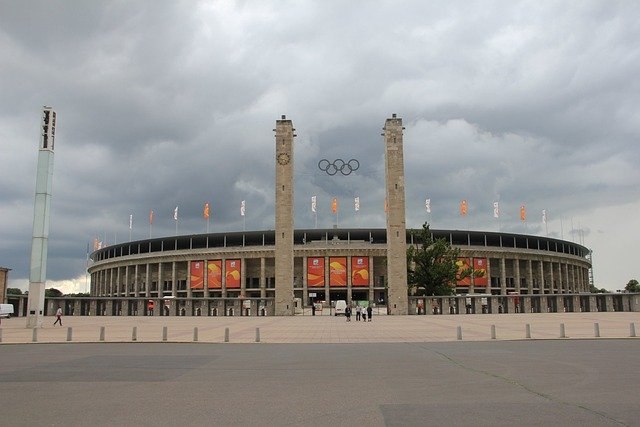In August, LA28 announced a historic first: competition venues at the 2028 Olympic and Paralympic Games will carry corporate naming rights. The decision opens new commercial revenue streams and signals a major shift in how the Games are funded. Among the first to adopt this model are the Comcast Squash Center at Universal Studios and the Honda Center, which will host volleyball.
The move reflects LA28’s commitment to staging a “no-new-build” Games, relying entirely on private funding rather than new taxpayer-backed construction. Naming rights revenue will serve as a central pillar of that strategy, with as many as 19 temporary venues also potentially eligible. Existing LA28 and Olympic partners will have priority access to participate in the program, which was developed in close collaboration with the International Olympic Committee. In addition, historically significant host venues will be excluded from the sale of naming rights due to their iconic status locally (e.g. Rose Bowl Stadium, LA Coliseum, Dodger Stadium).
To understand how fans view this historic shift, YouGov conducted a custom survey of U.S. sports fans over four days. The results show support for the Games in general: 76% plan to watch at least one event in 2028, with many noting a positive or neutral impact from the U.S. hosting the Games. On the specific question of venue naming rights, about a third of fans (34%) said they feel positive about the change, compared to only 18% who view it negatively. Younger Millennials were the most receptive demographic, with more than half expressing approval.
Notably, support for naming rights correlates strongly with a fan’s level of sports interest. Nearly 44% of respondents who rank sports among their top interests favored the decision, while enthusiasm waned among more casual followers. The findings suggest that while rates of negative perception are similar across fandom groups, highly engaged fans are more inclined to see the commercialization of Olympic venues as a necessary step to ensure the Games’ financial sustainability.
By leveraging corporate partnerships to help reduce financial risk, the Los Angeles organizers are reframing the business model of the Olympics while still aiming to deliver a globally unifying sporting spectacle. With YouGov data capturing fan sentiment, the conversation now extends beyond business strategy to the evolving relationship between sports audiences and the commercialization of the Games. Importantly, this change is launching in a market where consumers are conditioned to refer to venues by corporate sponsors’ names. Among U.S. sports fans, this otherwise historic shift may be tolerated better than among fans in other global markets because the practice is so familiar.
The bigger question is whether LA28’s move represents a one-off experiment or the beginning of a structural evolution for the Olympics. If naming rights prove both lucrative and acceptable to fans, future host cities — especially those under pressure to stage cost-neutral Games — may follow Los Angeles’ lead. Over time, this could mark the start of a new Olympic era, where balancing tradition with commercial innovation becomes central to how the Games are staged and sustained. In the end, LA28 may not just host the Games — it may redefine them.
